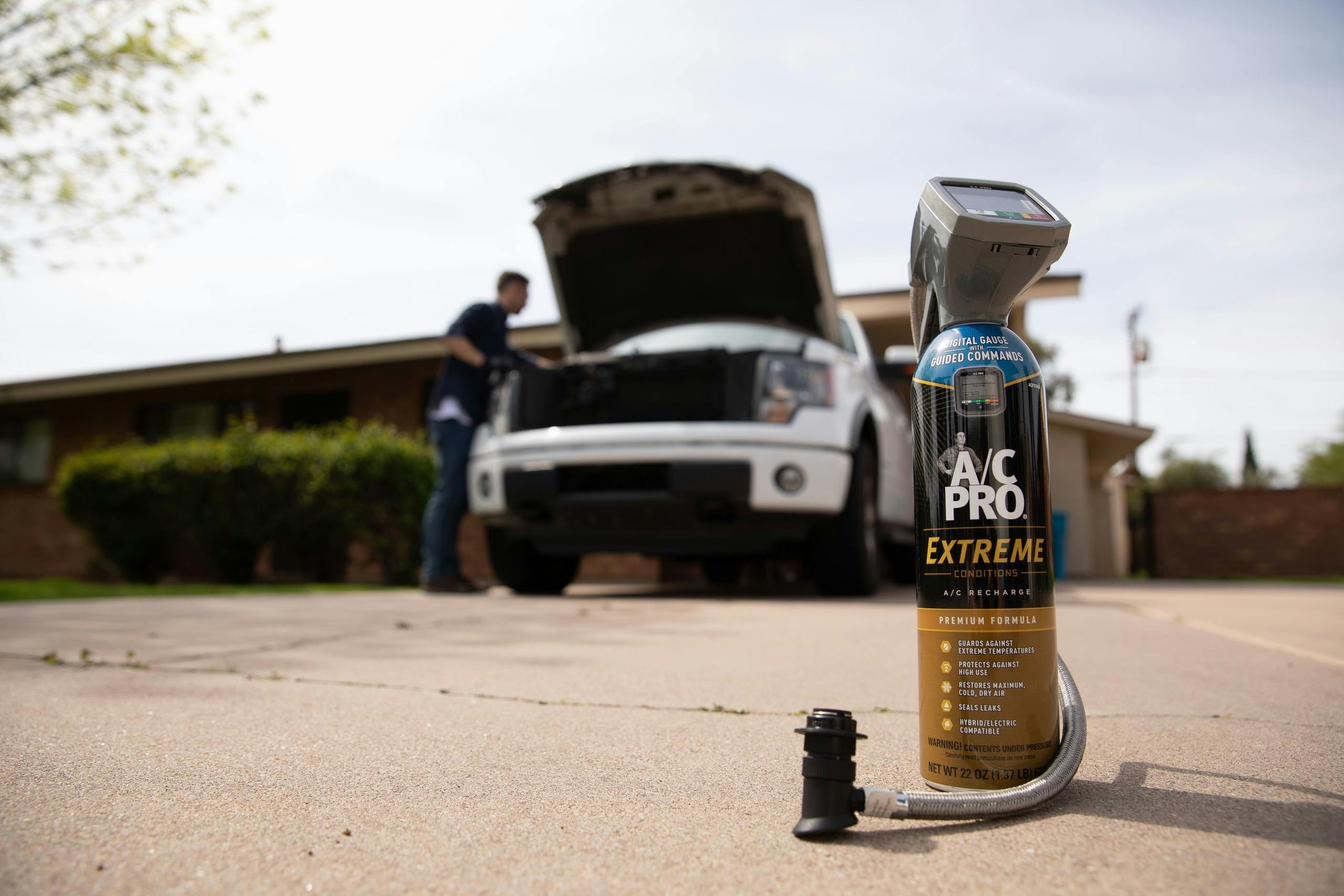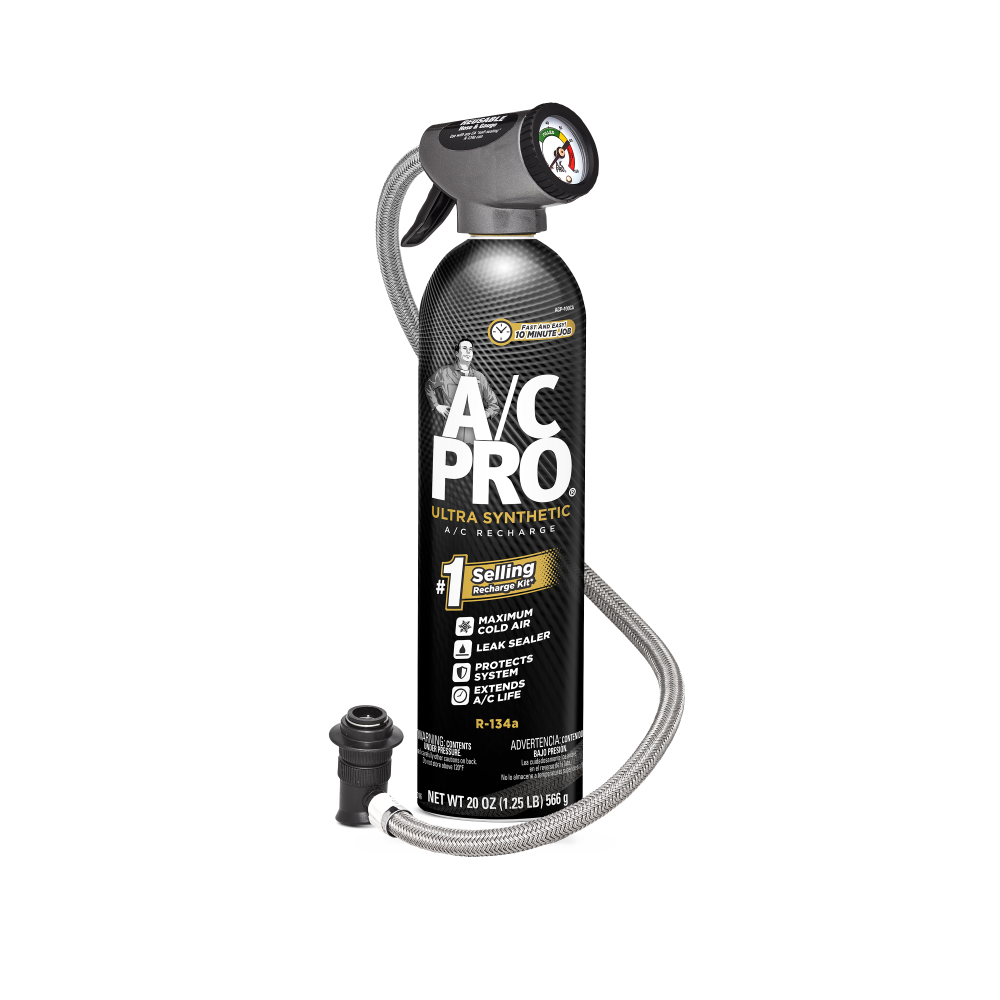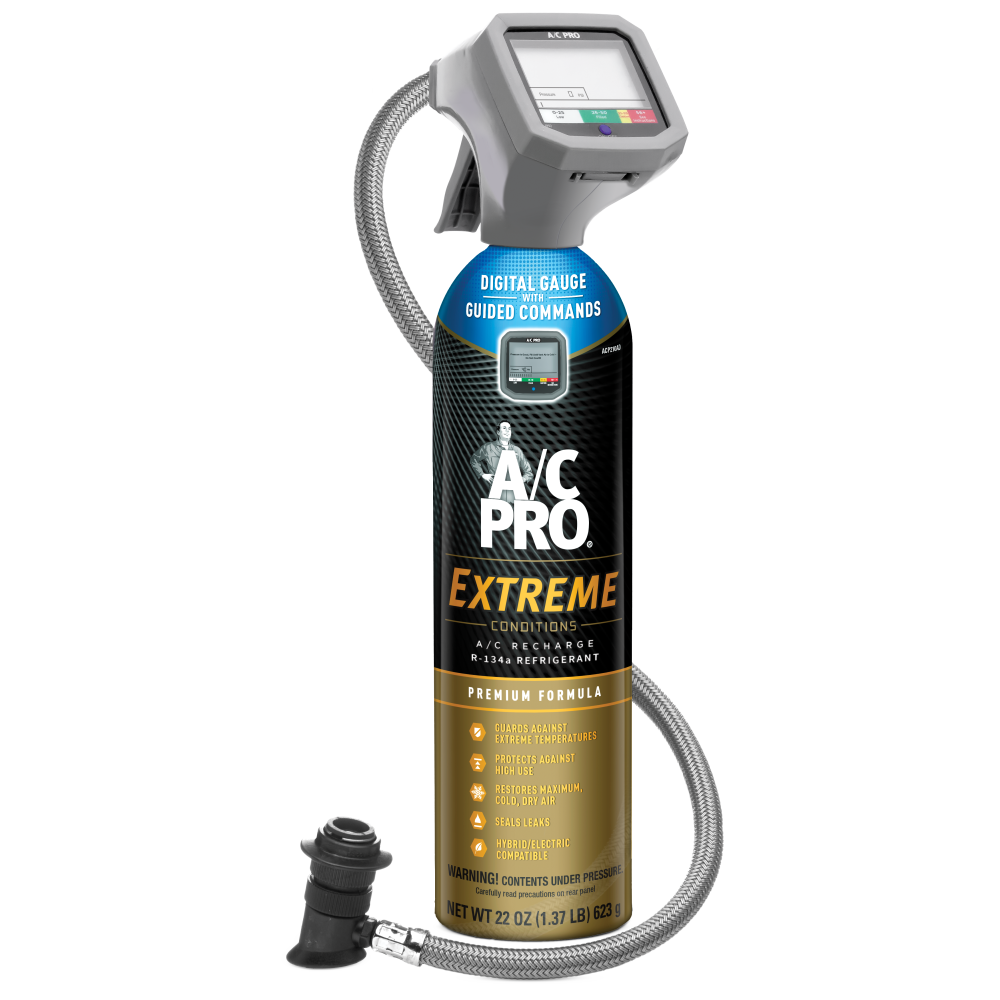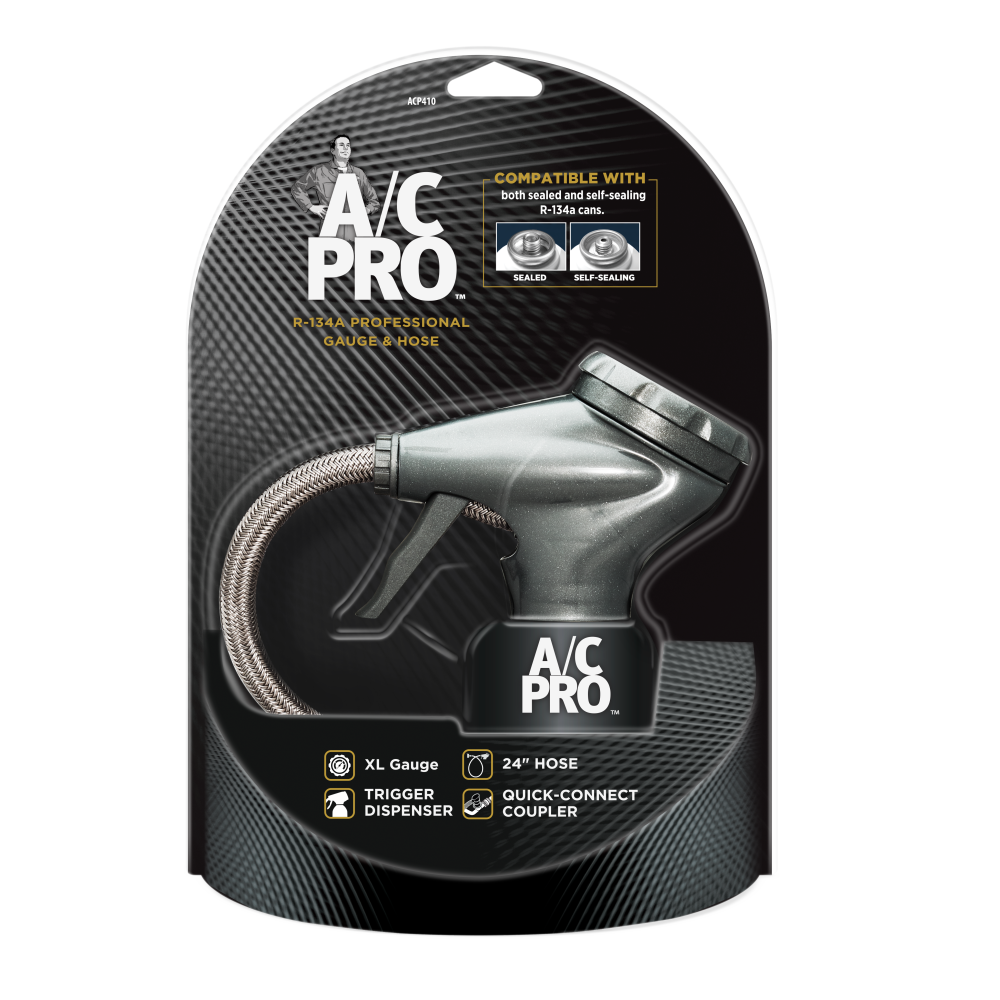Getting Your A/C Charge “Just Right”

Table of contents
Is your vehicle’s A/C blowing warm air? If so, it is likely low on refrigerant. You can easily fix it yourself by simply adding refrigerant, but how much should you add? It’s not a hard question to answer, but it is an important one to get right. That’s because having too much refrigerant in your A/C system is just as bad as not having enough. This isn’t a case of “too hot” versus “too cold.” If you have too much refrigerant in your A/C system, it will blow hot air (the same as having too little refrigerant). To get the coldest air possible, the amount of refrigerant in the system has to be “just right.”
Refrigerant Under Pressure
If you want to know why having too much refrigerant results in hot air, you have to understand a little bit about how an air conditioner works.
The A/C Cycle
- The R-134a refrigerant used in car air conditioners would normally be a gas (it boils at a frigid 15 degrees below zero). If you compress it and pressurize it enough, though, it turns into a liquid. The compressor in your vehicle’s A/C does exactly that, so you have liquid R-134a pumping through part of the A/C system.
- When that liquid reaches the in-dash cooling unit (called an evaporator coil), it passes through a valve that lowers the pressure.
- The lower pressure allows the liquid to boil and evaporate back into a gas. It absorbs heat from the air to boil.
- With the heat removed, the air becomes cold.
If you don’t have enough refrigerant, it won’t be able to cool the air. But if you have too much, the pressure will be too high for the refrigerant to boil or for the compressor to work. Which means the system won’t cool at all, and you’ll still be left with hot air.
Getting Your AC Charge “Just Right”

Sometimes people wind up with too much refrigerant because they try to add a certain number of ounces or cans to the system without checking the pressure. Your goal isn’t to add the right number of ounces, it’s to have the correct pressure. Putting the correct amount of R-134a in your car’s A/C system is simple when you use A/C Pro®.
How to Use AC Pro
Each can of A/C Pro® comes with a pressure gauge built in to the charging hose, allowing you to check the pressure as you add refrigerant. The gauge shows the proper pressure range and has an easy-to-use temperature dial to adjust the target pressure based on the current ambient (outside) temperature. (Higher temperatures cause the same amount of refrigerant to register a higher pressure; the dial provides a way to take this into account.) To get started:
Step 1:
Add A/C Pro® until the pressure is in the correct range, periodically checking the vent temperature (should be 20-30 degrees below the ambient temperature), and stop before it reaches the clearly-marked overcharge zone. It’s not necessary to reach the top (or far right) of the “V”.
Step 2:
When you reach a pressure in the proper indicated range, disconnect the can.
Step 3:
Check the temperature of the air blowing out of the vents. If your car is back to blowing cold air, you’re done!
TIP: If there is still refrigerant left in the can, it can be stored indefinitely or used to help recharge another vehicle’s air conditioning system.
Summary
By getting the refrigerant pressure “just right” with A/C Pro®, you can get the coldest air possible from your car A/C. Have questions? Feel free to ask the pro.







